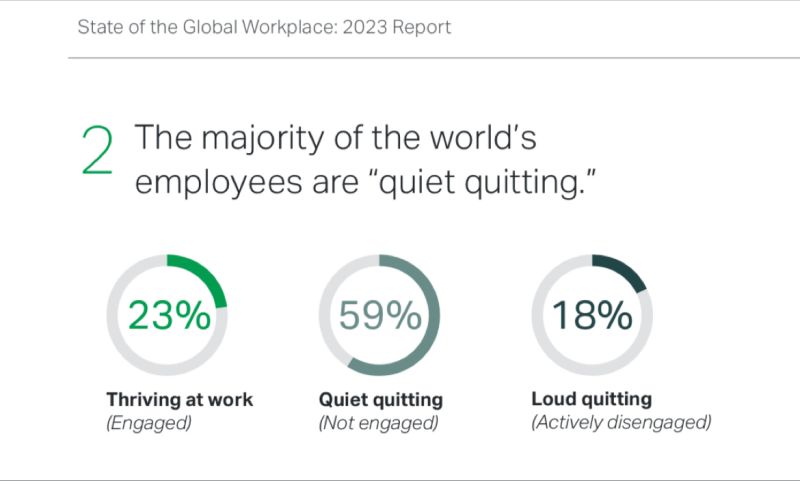Loud quitting is the new quiet quitting.
And the way we manage our teams has a lot to do with it.
According to Gallup’s 2023 report, nearly 1 in 5 employees worldwide are “loud quitting” their jobs, an action that directly harms the organization by undercutting its goals and opposing its leaders.
The report, based on data from over 122,000 employed individuals, indicates that loud quitters are “actively disengaged” at work. In contrast, “quiet quitters” are simply “not engaged,” while engaged employees are “thriving at work.”
The research suggests that the combination of loud quitting and quiet quitting costs the global economy $8.8 trillion, accounting for 9% of global GDP.
“Loud quitting” employees are not only detached from their organizations, but also emotionally against them and are vocal about their dissatisfaction. They are also more likely to take another job quickly if it becomes available.
This behavior can stem from several reasons such as mismatched roles, loss of trust with the employer, but most importantly, it boils down to management.
The report estimates that management accounts for about 70% of the variance in team engagement.
To counter this, Gallup suggests that managers should aim to have one meaningful conversation a week with every employee to share feedback, give recognition for their work, and discuss goals and priorities.

